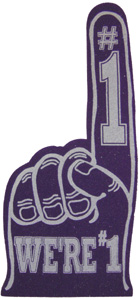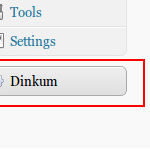In the last couple of weeks, Search Engine Optimization has made the news! I expect to read about SEO on blogs posted by fellow practitioners. But Bob Garfield, of On the Media on National Public Radio hosted an interview radio show segment on this very topic called “How to Cheat Google.” He interviewed David Segal, writer for the New York Times, who recently wrote about J.C. Penney and their search engine optimization campaign.
First Garfield explained a study indicating that a third of people click only on the first hit when they search online. Another third of internet searchers click on the second through fifth hits. This led to his assertion that top placement on Google may make the difference between success or failure for an online retailer.
After setting the stage, he talked about SEO and Google’s PageRank algorithm, using terms like “guerilla war” for position and “art and science” of manipulating pagerank, which was his definition of SEO. He also referred to Google’s algorithm for determining pagerank as the most important piece of software on the internet. Obviously with the fate of companies hanging in the balance, that must seem to be the case.
We always explain to our clients from the beginning of their campaign that SEO is part art and part science. The science part involves making sure the website is technically sound and easily navigated, as well as populating the site with quality, relevant content that visitors find useful. The art portion involves identifying keyword phrases, writing copy that makes the best use of those phrases, and writing and distributing quality online content that is distributed through other relevant channels to raise the visibility of the website on the internet. Done correctly, this organic process takes time, is not manipulative, and higher rankings build naturally as content is created and shared on the site and on other places on the internet.
One of the positive things I heard in this segment was raised by David Segal, when explaining that Google changes their algorithm about 500 times a year. He also mentioned that since Google is quite secretive about what makes up their algorithm, that there are people constantly experimenting to see what the changes mean on an ongoing basis. Part of what we do at Dinkum involves experimentation, and trial and error. If we use these phrases what happens to visitor numbers? If we distribute a press release using this means, what results can we measure? How do these things affect the conversion goals for the website?
We will enjoy SEO’s 15 minutes of fame, but keep working with our clients to improve the quality of their sites, thereby improving the quality of search results without trying to game the system.


